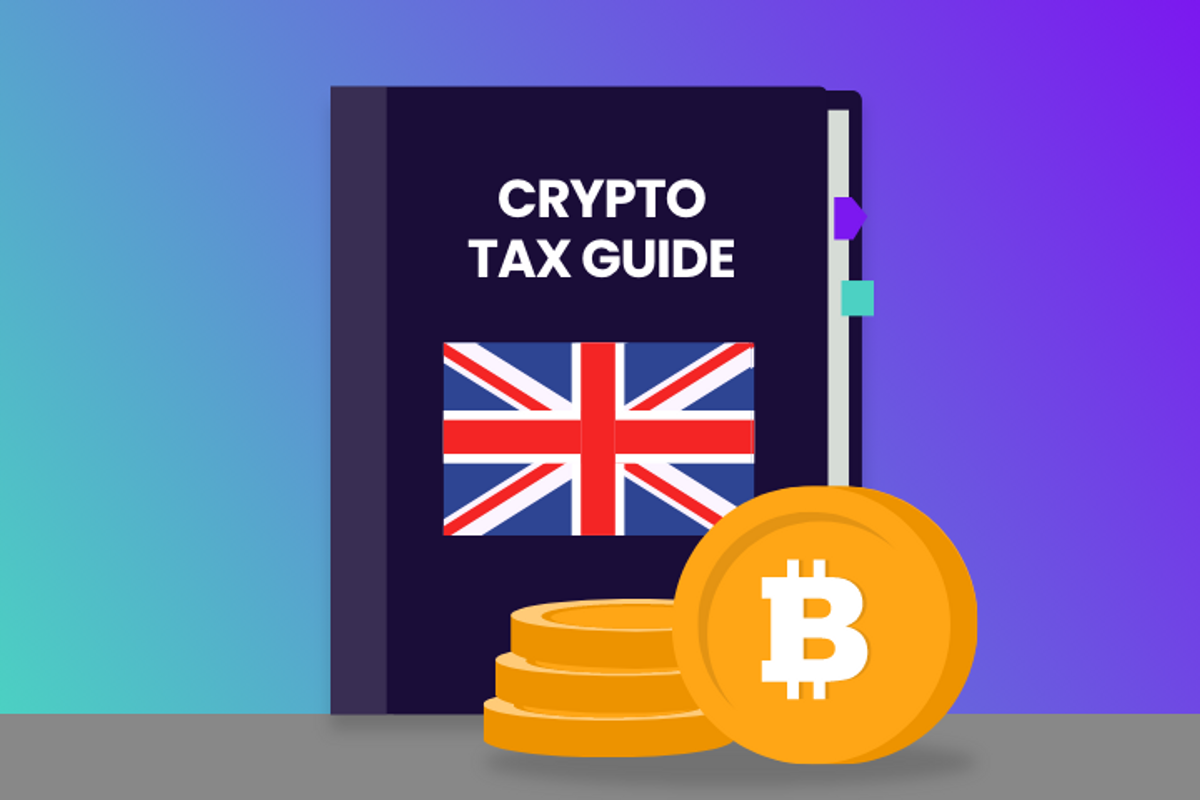
When you're actively buying, trading and selling cryptoassets, it's important to understand whether HMRC classes you as a financial trader or a crypto investor. This distinction determines whether your profits are subject to capital gains tax (CGT) or income tax and national insurance (NI), which can have a significant impact on your overall tax bill.
HMRC guidance states that “the question whether cryptoasset activities amount to trading depends on a number of factors and the individual circumstances”. In this guide we outline key criteria HMRC may consider when determining a trading position to help you decide whether your crypto activities may amount to financial trading, and the tax implications of being classed as a trader. It is a complex area and we strongly recommend getting advice from a tax professional before filing your tax return.
Disclaimer
This guide is intended as a generic informative piece. This is not accounting or tax advice that can be relied upon for any UK individual’s specific circumstances. Please speak to a qualified tax advisor about your specific circumstances before acting upon any of the information in this article.
What is a financial trader in crypto?
HMRC classifies a financial trader as someone who engages in buying and selling financial instruments (like shares, bonds, commodities) with a professional, business-like approach. In crypto, a financial trader is someone who engages in buying and selling cryptoassets at a level that mimics professional trading. While most investors buy crypto to hold for potential gains over time, a financial trader operates more like a business, with organised and frequent transactions, and large trading volumes that generate regular profits.
Investor or trader?
Although you may frequently trade crypto or call yourself a “crypto trader” it's unlikely that your cryptoasset activities amount to financial trading for tax purposes. HMRC recognises the term "trade" in crypto is commonly used by investors, but states that the use of the term in this context is not sufficient to be regarded as a financial trade for tax purposes.
“Only in exceptional circumstances would HMRC expect individuals to buy and sell exchange tokens with such frequency, level of organisation and sophistication that the activity amounts to a financial trade in itself”. HMRC Crypto20250
HMRC evaluates each case individually, looking closely at whether your crypto activity meets the criteria of a financial trade. While there isn't a one-size-fits-all approach to determining your status, there are certain indicators that can help clarify where you stand.
Key signs you might be classed as a financial trader:
- Nature and frequency of transactions: You trade cryptoassets regularly, potentially on a daily or weekly basis, with a consistent pattern of buying and selling.
- Organisation of activity: Your trading activity is structured like a business and resembles share trading. You may use dedicated trading tools, algorithms, or employ strategies to optimise your returns.
- Sophistication and knowledge: You have in-depth knowledge of markets and trading strategies, and you use this to make informed, fast-paced decisions.
Most UK crypto users will be classed as investors, meaning any profits will be subject to capital gains tax. This is often the case even for relatively frequent traders, as long as they don’t exhibit the badges of trade.
Example:
Imagine you buy and sell crypto as a side activity while working a full-time job. You trade monthly but don’t use sophisticated tools or strategies. HMRC is more likely to consider you an investor, and your profits will be subject to capital gains tax. In contrast, if you spend most of your time actively trading, use algorithmic bots, and have a clear profit motive, you might be seen as a financial trader in cryptoassets.
HMRC’s approach for classifying crypto financial trading
Considering if you are a financial trader is a very complex area. We recommend you read through this guidance but also consult a professional tax advisor to consider your specific circumstances.
“A trade in exchange tokens would be similar in nature to a trade in shares, securities and other financial products. The approach to be taken in determining whether a trade is being conducted or not would also be similar, and guidance can be drawn from the existing case law on trading in shares and securities.” HMRC Crypto 20250
While HMRC’s badges of trade offer a framework for assessing whether someone is a financial trader, they are not definitive when applied to the buying and selling of financial instruments such as shares, securities, and cryptoassets. The HMRC Business Income Manual highlights the limitations of using these badges in the context of financial trading, particularly due to the complex nature of the markets.
The question of whether cryptoasset activities amount to trading depends on a number of factors and the individual circumstances. It will ultimately be a question of fact.
As a result, HMRC looks beyond the basic framework and instead takes into account a broader set of considerations when determining whether someone is trading professionally in crypto.
Key areas to explore include:
- Experience: HMRC will examine the trader's experience. Those with a history of working in finance or being regulated by bodies like the Financial Conduct Authority (FCA) or the Financial Services Authority (FSA) will be scrutinised more closely as potential financial traders.
- Reason for commencement: Why did you start trading in the first place? If you have little experience in financial markets and began without a clear plan, this might suggest you are not a financial trader. However, if you entered with specific knowledge or experience in the sector, HMRC could lean towards a classification of financial trading.
- Funding: HMRC will also investigate how the initial trading activities were funded. Were large sums of money or external investments involved, or did you start with small, personal amounts? Professional trading is often well-funded from the start.
- Registered with HMRC: Did you notify HMRC when you began your trading activity, as you would if you were running a business? If no steps were taken to register, this could indicate the activity isn’t viewed as a professional trade.
- Commerciality: How precise and structured is your trading activity? If you have a well-organised system, meticulous record-keeping, and execute trades in a commercially sound manner, this may indicate financial trading.
- Profit-making strategy: HMRC will review your business plan (if any), to see whether you had a clear, realistic profit-making strategy. Even if a formal business plan wasn't drawn up, you are expected to have a clear idea of how to generate profit, review performance and adjust your strategy as necessary. HMRC will also check whether you set a limit on tolerated losses.
- Loss-limiting strategy: Did you have a strategy in place to limit your losses? This might be a ‘stop-loss’, which effectively caps losses at a certain level, or a hedging strategy in case the market moves against expectations. Financial traders typically use these strategies to minimise risk.
- Type of cryptoassets: The type of cryptoassets you traded can also be relevant - in particular the ease (or lack of) with which the items can be bought and sold.
- Wide or narrow range of cryptoassets: Do you trade a broad variety of cryptoassets, or focus on a narrow selection? A person who buys only particular cryptoassets, or operates in a narrow area of the market, may be using experience but may also be exposed to greater risk of adverse market movements which a regulated dealer would be able to limit. It might even cause the person to cease dealing for a time in contrast to a regulated dealer who seeks to make money from any market situation (see BIM56820).
- Acumen: HMRC will also consider whether you have the acumen necessary for financial trading. Do you act on researched strategies, or simply follow tips and trends? It may be relevant in this connection whether the person uses an ‘execution only’ service from the Exchange (where the Exchange simply carries out the client’s instructions), or whether more detailed financial advice is received commensurate with operating a portfolio of investments. Additionally, if automated systems or bots are used, they’ll assess how much influence you have over how the program operates.
- Research: How much research do you undertake before trading? HMRC will evaluate whether you’re acting based on in-depth analysis, access expensive real-time information, or simply rely on casual advice or speculative tips. Serious research, combined with frequent transactions, may be seen as indicative of trading.
- Number and frequency of transactions: While not entirely determinative, the number and frequency of your transactions will be considered. Frequent trades, especially on a regular basis, may be more indicative of professional trading.
- Holding term: HMRC will look at how long you hold cryptoassets before selling. Short-term trades, potentially within minutes or hours, may suggest trading, while holding assets for months or years tends to suggest investment activity. Be aware that, in some cases, transactions may be rolled over on a number of occasions, so they appear to be held long-term, but are in fact conceptually different from a long-term investment.
- Time spent: The amount of time you devote to trading will be taken into account. If it’s a full-time activity, this might indicate professional trading, whereas someone with other full-time commitments may not fit the profile of a financial trader.
- Prior trading activity: Your previous trading activity in cryptoassets will be compared to your current practices. If your earlier trades were more like investments, but you’ve shifted to frequent, systematic trading, this could point to the commencement of a trading activity.
- Provision of service to others: HMRC will also explore whether you provide services to third parties, such as managing trades or offering advice, which could suggest you’re engaged in a business.
- Records: We already mentioned your record keeping but you should also conside the extent of the records kept or provided by Exchanges. Where transactions are carried out on a margin there will be specific documentation in relation to this between the Exchange and the individual.
- Fiscal motive: HMRC will investigate whether there’s a tax-driven motive behind your trading activity, which could affect their assessment of whether it constitutes trading.
- Hobby Motive: Finally, HMRC will assess whether your trading might have a non-commercial motive, such as being conducted as a hobby rather than a serious business activity.
Even though some badges of trade may apply, HMRC evaluates these factors collectively to determine whether someone is a financial trader. Ultimately, their decision comes down to the specific situation.
Do HMRC consider crypto mining financial trading?
A common question is whether HMRC considers crypto mining to be financial trading. Whether you're mining Bitcoin, Ethereum, or other cryptoassets, HMRC's stance is that the tax treatment of mining depends on several factors, including:
- Degree of activity
- Orgnisation
- Risk
- Commerciality
You can find out more about mining and crypto tax in our dedicated article about crypto mining. Here’s a quick summary of how tax may apply, depending on whether your mining qualifies as a trade:
- Miscellaneous income tax on crypto mining: generally earnings from mining are subject to income tax.
- Financial trading income: If your mining operation is substantial and organised, it might be viewed as a business in itself. This could be the case if you’re mining large volumes or using sophisticated hardware and strategies, making income tax and national insurance ((NI) applicable.
- Selling mined crypto: When you sell or dispose of mined crypto, any gains (or losses) are taxed. The applicable tax - either Capital Gains Tax or Income Tax - depends on your circumstances and whether HMRC classifies your activity as trading.
Example:
Let’s say you have a small setup at home for Bitcoin mining and sell the mined tokens after holding them for several months. This would likely be treated as investment income, subject to capital gains tax. On the other hand, if you run a more sophisticated mining operation and sell the tokens shortly after mining, HMRC could classify this as income from trading, subject to income tax.
How to report crypto financial trading income to HMRC
If your crypto activity is classified as financial trading, you’ll need to report your income to HMRC through the annual self assessment tax return. Keep in mind that the deadline is 31st January each year.
- Register for self assessment: If you haven’t already, you’ll need to register with HMRC to file your taxes. This can be done online, and you should register by 5th October to ensure you are set up ready to file on time and avoid penalties.
- Record your trading income and expenses: Track your crypto trading activity carefully, including profits, losses, transaction fees, and any business-related expenses. Ensure you keep consistent and accurate records of the fiat sterling value of income at the time of receipt. HMRC may want to see evidence of your income and the costs you incurred to generate it.
- Complete the self assessment tax return: When completing your tax return, report your trading income under the self employment pages.
- Deduct allowable expenses: You can claim allowable expenses that directly relate to your trading activity, such as fees for exchanges, software, or hardware costs.
- Pay income tax and national insurance: You’ll need to pay the income tax and national insurance contributions based on your declared trading profits.
Are you engaged in financial trading in cryptoassets for tax purposes?
For most UK crypto investors, capital gains tax will apply to their profits. However, if your activity is more organised, frequent, and profit-driven, you may fall under the scope of financial trading and be subject to income tax and national insurance instead. Whether you are classified as a financial trader or investor depends on how closely your circumstances match the criteria outlined above.
If you’re unsure about your classification, consulting a tax professional is highly recommended to help clarify your position and understand how it impacts your tax liability. Staying on top of your crypto activities can be challenging, but Recap makes it easier by helping you track income and calculate capital gains, providing consistent and accurate valuations to keep you organised and compliant.


